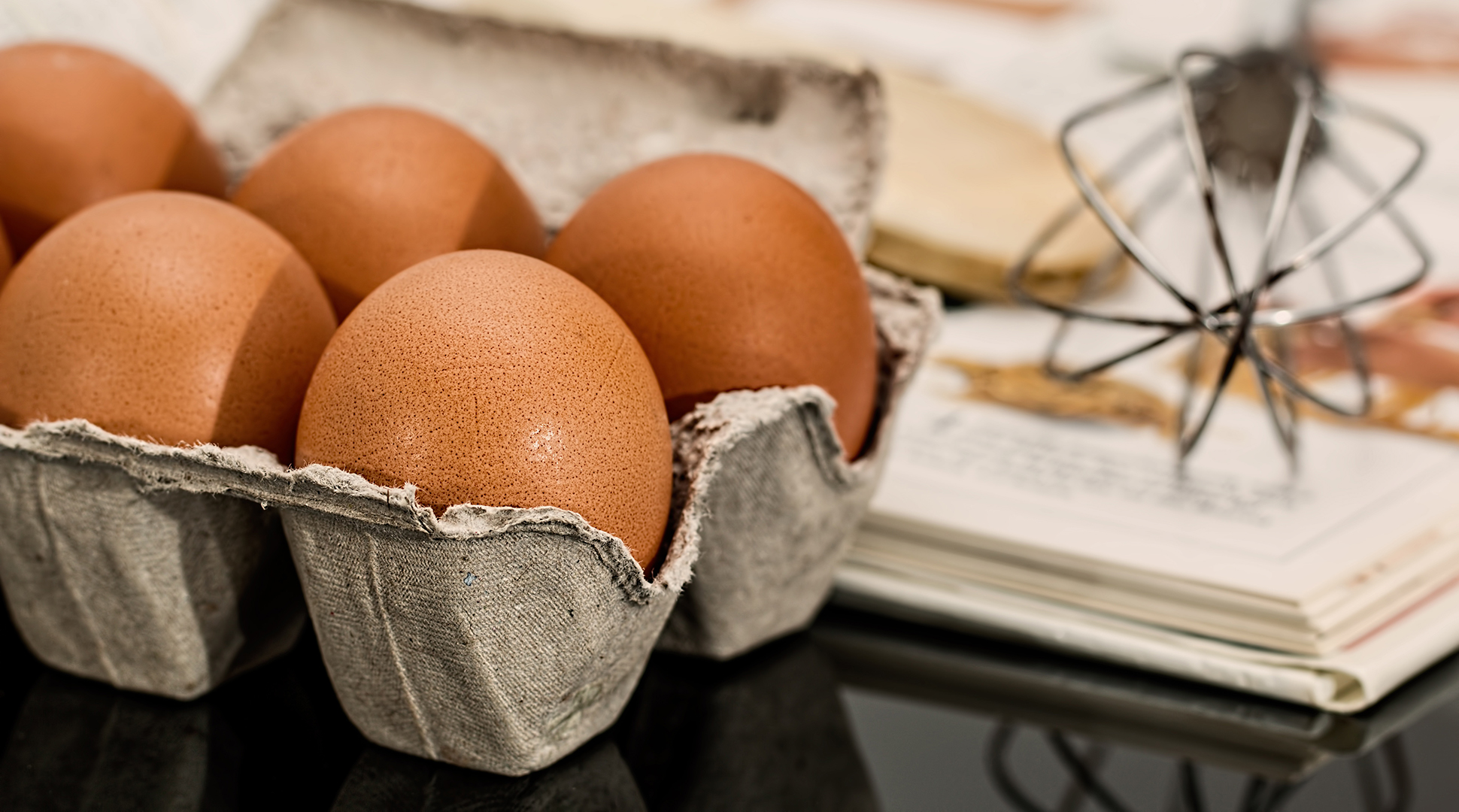photo courtesy Pixabay
By Julie Garden-Robinson, Food and Nutrition Specialist, NDSU Extension
When I was a girl, a farmer brought eggs to our home regularly.
He often included some brown-shelled eggs for me. I thought they looked interesting and tasted better.
Brown eggs give me a nostalgic feeling.
“I brought home some eggs with brown shells,” I noted recently. “My friend at work has chickens and he gave me a dozen eggs.”
My older daughter immediately went to the fridge and began examining the eggs.
“Why are some eggs brown, anyway?” she quizzed. “Are brown eggs healthier than white eggs?”
“The color of the shell depends on the breed of chicken, and brown eggs have the same nutrition as white eggs,” I replied.
Her questions piqued my interest in delving deeper. Raising chickens that lay different colored eggs can be a novelty, even in urban backyards.
The colorful eggs displayed by 4-H members at county fairs have attracted me to take a closer look. The multicolored chickens with the wild feathery “hair-dos” have captured my attention, too.
White Leghorn, Ancona and several other breeds lay white eggs. Rhode Island Red and Sussex chickens are among the breeds that lay brown eggs. Ameraucana and Araucana chickens lay blueish eggs. Most Easter Egger chickens lay green eggs.
All egg shells start out white inside the hen. Later the pigments are deposited on the shells in-utero, depending on the hen’s genetics.
The yellow-gold shade of the yolk, by the way, depends on what the chicken eats.
Regardless of shell or yolk color, egg protein earns a “gold star” for quality. Eating protein in the form of eggs helps sustain our energy when enjoyed for breakfast or other meals.
A large chicken egg equals an ounce of protein and has just 80 calories and 5.5 grams of fat. Eggs also contain vitamins and minerals.
Egg yolks are among the few foods that contain vitamin D naturally, and we need this vitamin to help us absorb calcium and maintain healthy bones, among many functions. The pigment in egg yolk also is linked to helping us maintain healthy eyes.
Eggs have fallen in and out of favor through the years. Most nutrition professionals now say that an egg or two a day is OK for healthy people to consume unless they are advised otherwise by a health-care provider.
An egg contains less than 200 milligrams of cholesterol. The cholesterol content is what prompted the recommendations to restrict eggs. However, dietary cholesterol has less of an effect on blood cholesterol than once believed.
In fact, people who are trying to lower their blood cholesterol levels should pay closer attention to the amount of trans and saturated fat in the foods they choose.
Despite all their positive features, eggs sometimes are linked to food safety issues. They need to be stored and handled properly.
Eating raw eggs is not considered safe because eggs may contain Salmonella, a type of bacteria that especially is dangerous for the very young, old and immune-compromised. In uncooked recipes calling for raw whole eggs, yolks or whites, substitute pasteurized eggs for whole eggs and meringue powder for egg whites.
At the grocery store, don’t let the date on the carton confuse you. The date on eggs is a “sell by” date, which the grocery store follows. The eggs are still safe to use at home for about five weeks as long as they’re stored in a refrigerator (preferably not in the door of the fridge) at 40 F.
Egg cartons also may have a 3-digit code, or “Julian date,” which indicates the day of the year the eggs were washed, graded and put in the carton. The number 365 means they were in the carton on Dec. 31.
By the way, hard cooking eggs shortens their shelf life instead of extending it. Use hard-cooked eggs within a week.
We love deviled eggs in my house, and a family-favorite is available on the NDSU Extension recipe site (https://www.ag.ndsu.edu/food/recipes/meats/deviled-eggs).
(Julie Garden-Robinson, Ph.D., R.D., L.R.D., is a North Dakota State University Extension food and nutrition specialist and professor in the Department of Health, Nutrition and Exercise Sciences. Follow her on Twitter @jgardenrobinson)
